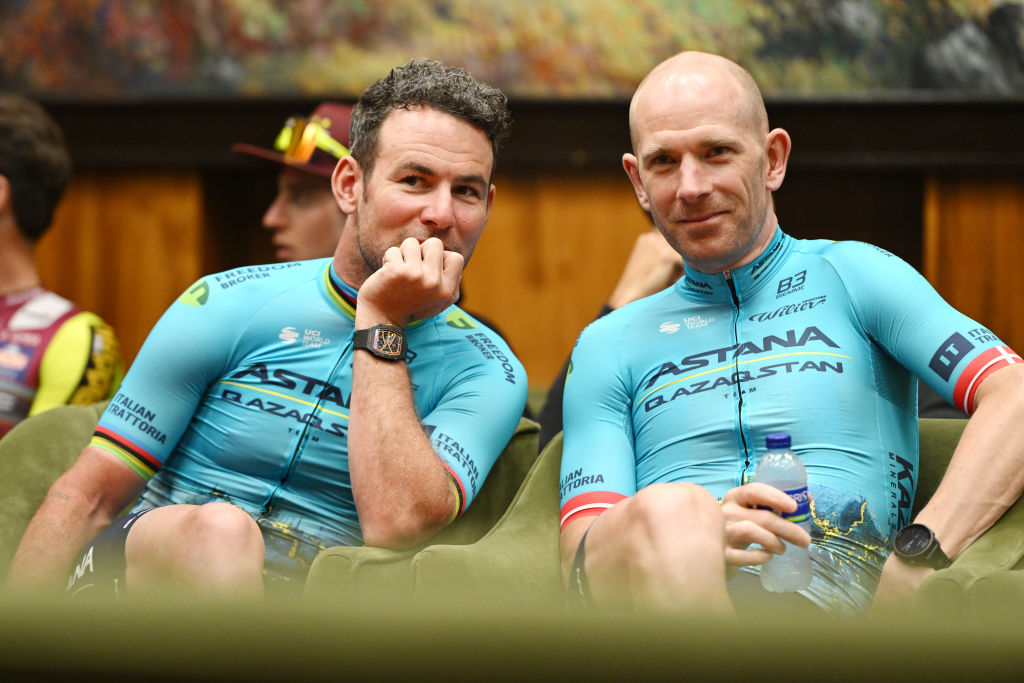
The destination is the same as ever it was for Mark Cavendish, but there's no harm in opting for a different route now and then. Cycling keeps changing, after all. For the results in July to stay the same, a degree of adaptation has been necessary over the years.
With that in mind, Cavendish has opted for a novel prelude to this, his 19th season in the WorldTour. He has already spent the past three weeks in Colombia undertaking the most extended stint of altitude training of his entire career, and on Tuesday, he begins his campaign some 2,500m above sea level at the Tour Colombia.
Cavendish and an Astana Qazaqstan contingent that includes Michael Mørkøv, Cees Bol and his coach Vasilis Anastopoulos arrived in Colombia on January 15. After a week or so in Rionegro, training with a police escort to navigate the heavy traffic in the hinterland of Medellín, they moved to higher ground in Boyacá, the site of the Tour Colombia's opening three stages.
"I can't believe it after so many years, but it's my first time in Colombia. I want to stay," Cavendish said at the pre-race press conference on the shores of Lake Sochacota on Monday. "We spent a week in Medellin, which was incredible, and then we came up here to Paipa. The only problem was I couldn't breathe for two weeks. But now I understand why the riders from Colombia just play with us when they come down to sea level."
Cavendish explained that he had no real frame of reference for gauging how well he had adapted to the rarefied air during his time in Colombia. "It's hard to compare when it comes to adaptation because I've never really done altitude before," he said. The opening stage to Duitama should offer some indication. Although the town's name is forever redolent of that most arduous 1995 World Championships course, the route on Tuesday lends itself to a bunch finish.
The expectation is that Cavendish will vie with Fernando Gaviria (Movistar) for victory, but the Manxman knows only too well that racing in South America against a motivated peloton of Continental riders can produce surprises. A teenaged Gaviria, after all, announced himself to the world by beating Cavendish at Villa Mercedes on the opening day of the Tour de San Luis back in 2015.
"With regards to the sprints, I don't know," Cavendish said. "We've got a very strong team, and I know Fernando has a strong team with Movistar too. But like we've seen with the road championships in Colombia, there are a lot of domestically based riders who can spring a surprise. We'll just enjoy it and see how it goes."
Gaviria, for his part, nodded to Cavendish – "el compañero," he smiled – as his main obstacle on Tuesday, and the renewal of their friendly rivalry is one of the intriguing subplots to this race. When Gaviria signed for QuickStep in mid-2015 to offset Cavendish's imminent departure, few could have anticipated that they would still be clashing almost a decade later as the older man closed in on his 39th birthday.
"I don't know. Just adapt, I guess," Cavendish said when asked how he had managed to retain his finishing speed so deep into his career. "I'm very fortunate to have had a career that spans many generations of riders and I got to race against the champions of all of those generations.
"From doing that, I managed to learn a lot and learn how to race and adapt to how cycling changes. And I just love it. When you love it so much, you just ride your bike. That's it."
The race Cavendish loves above others, of course, is still five months away. His crash at last year's Tour de France, not to mention his frustrating near miss the previous day in Bordeaux, ultimately persuaded him to postpone his retirement. He realised he still had unfinished business, and his presence here in Colombia is a means to that end.
"Of course, I always think about the Tour de France," Cavendish said. "I've always thought about the Tour de France in my whole career. But that doesn't mean you take the rest of the races easy, you know.
"As a sprinter, especially, you're marked on your wins. Second, third, fourth or fifth doesn't matter, you're rated by your wins, so it's always important to win throughout. And both on a physical and mental point, the motivation you get from victories early in the year can carry you through to July."







